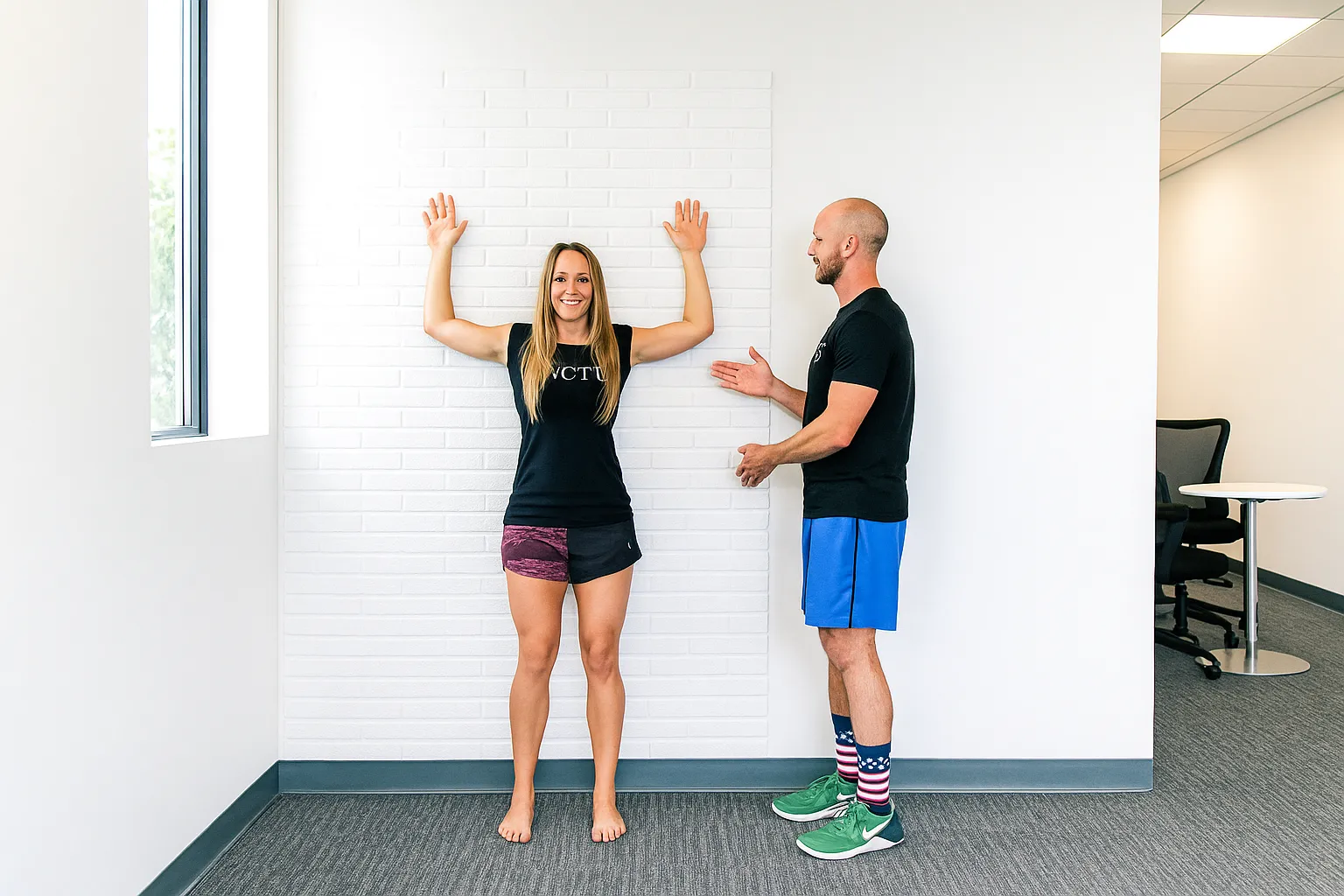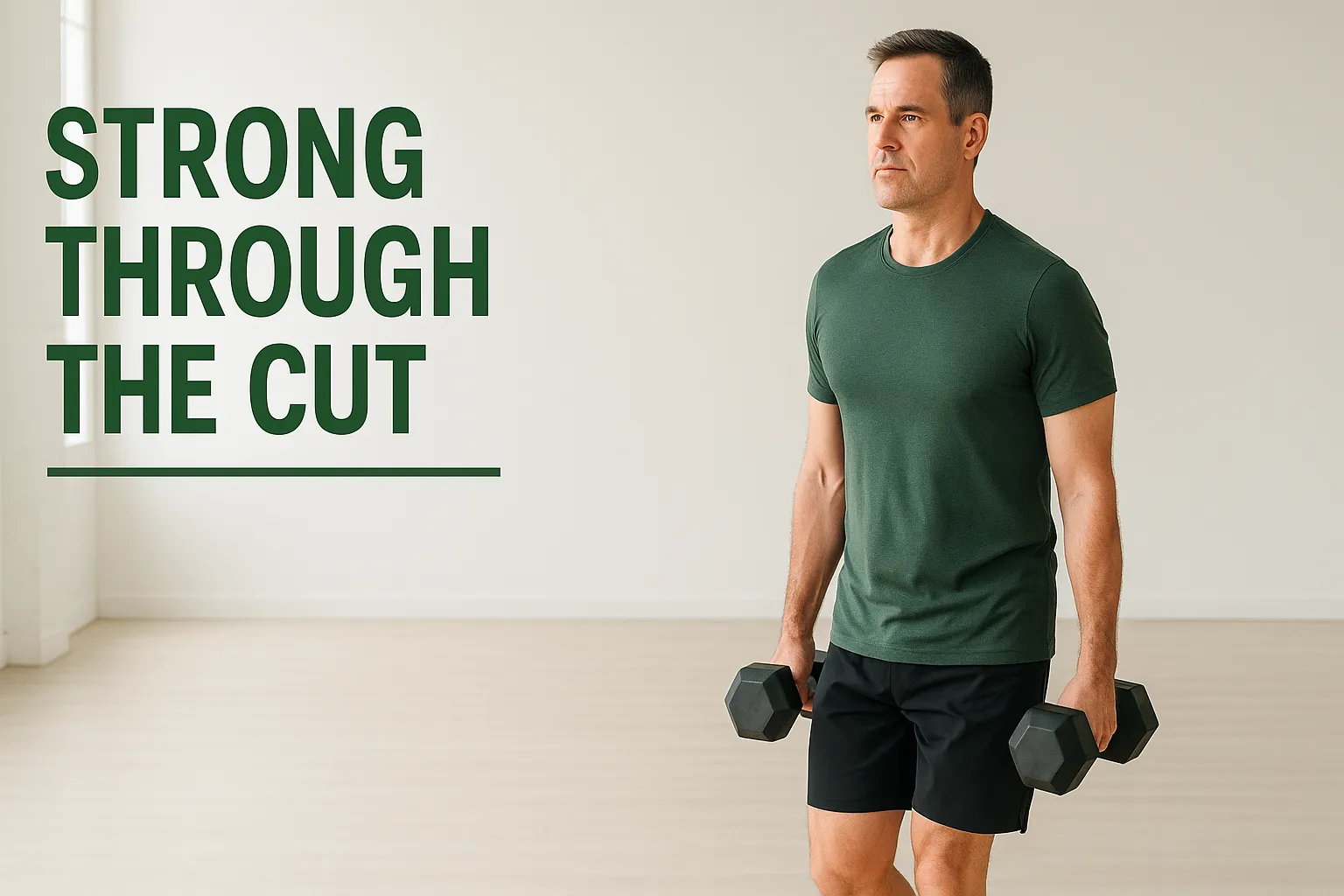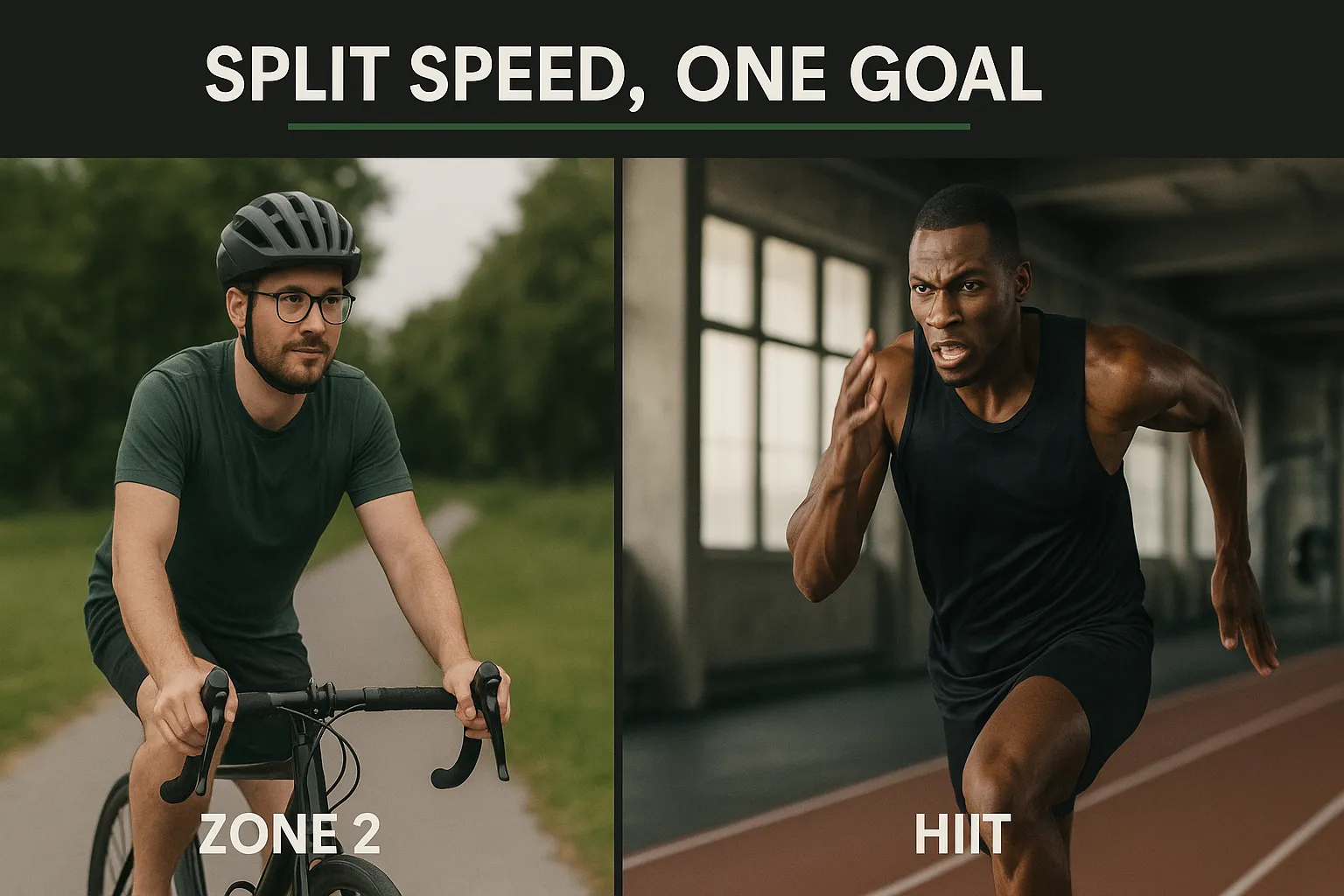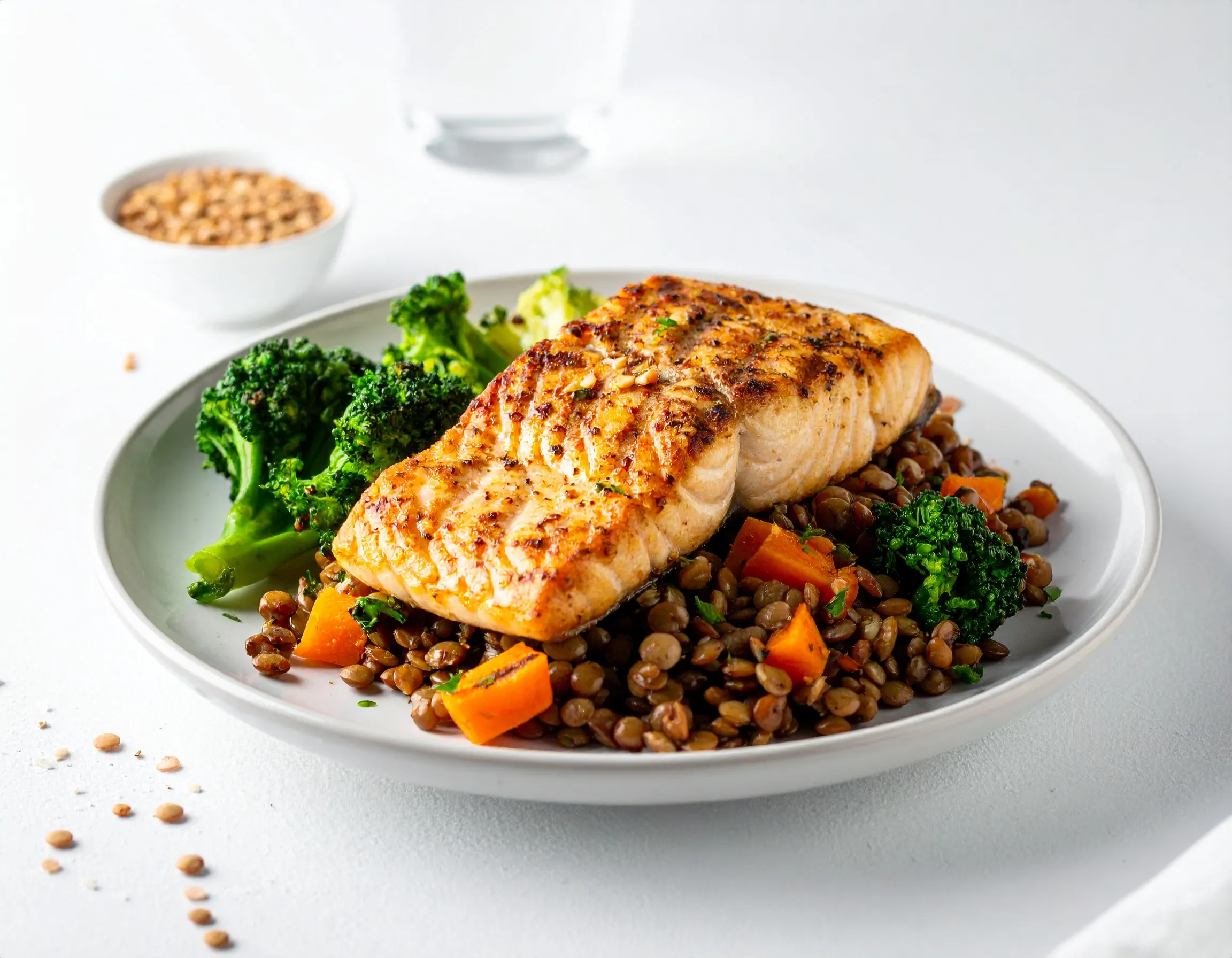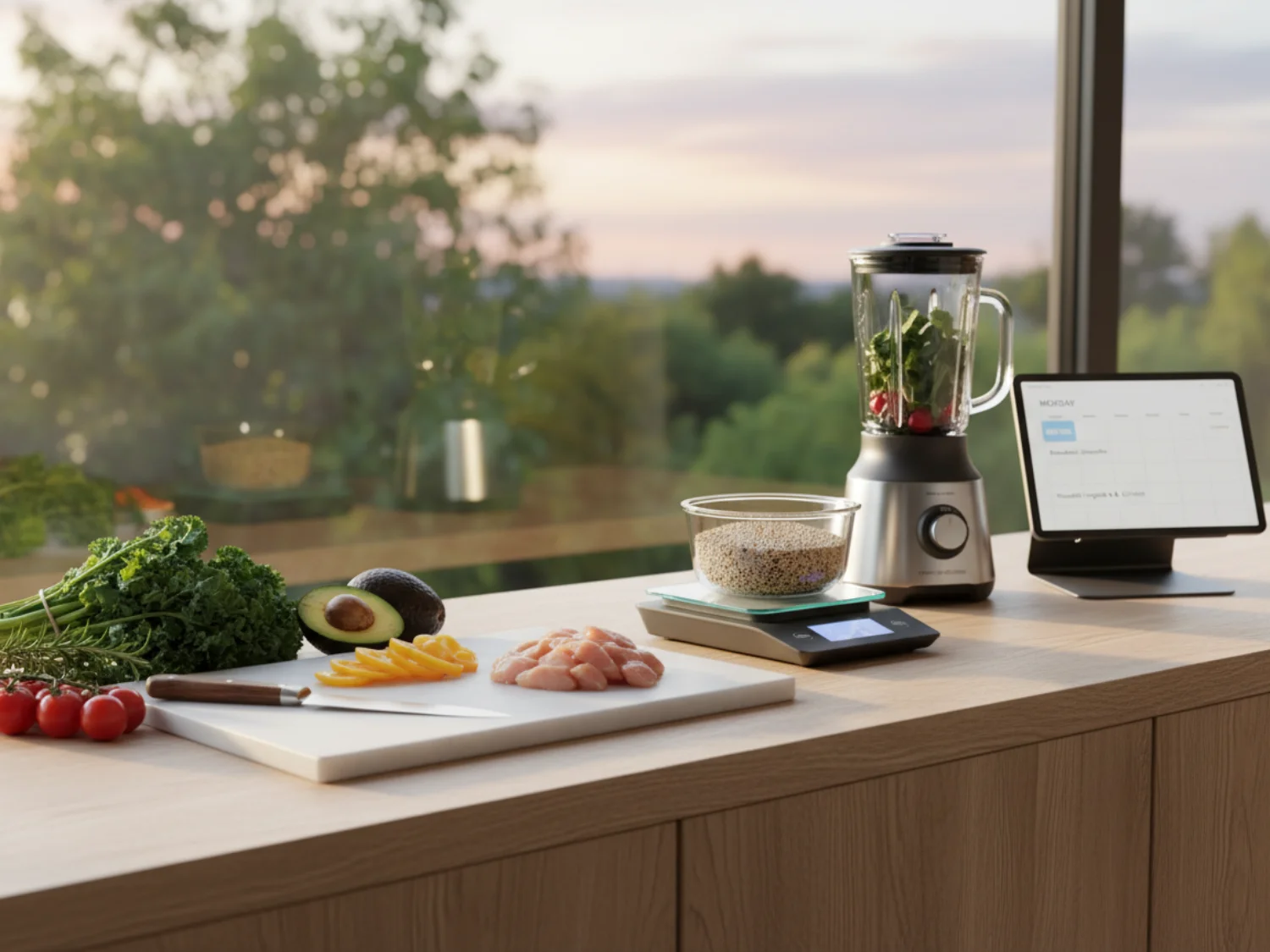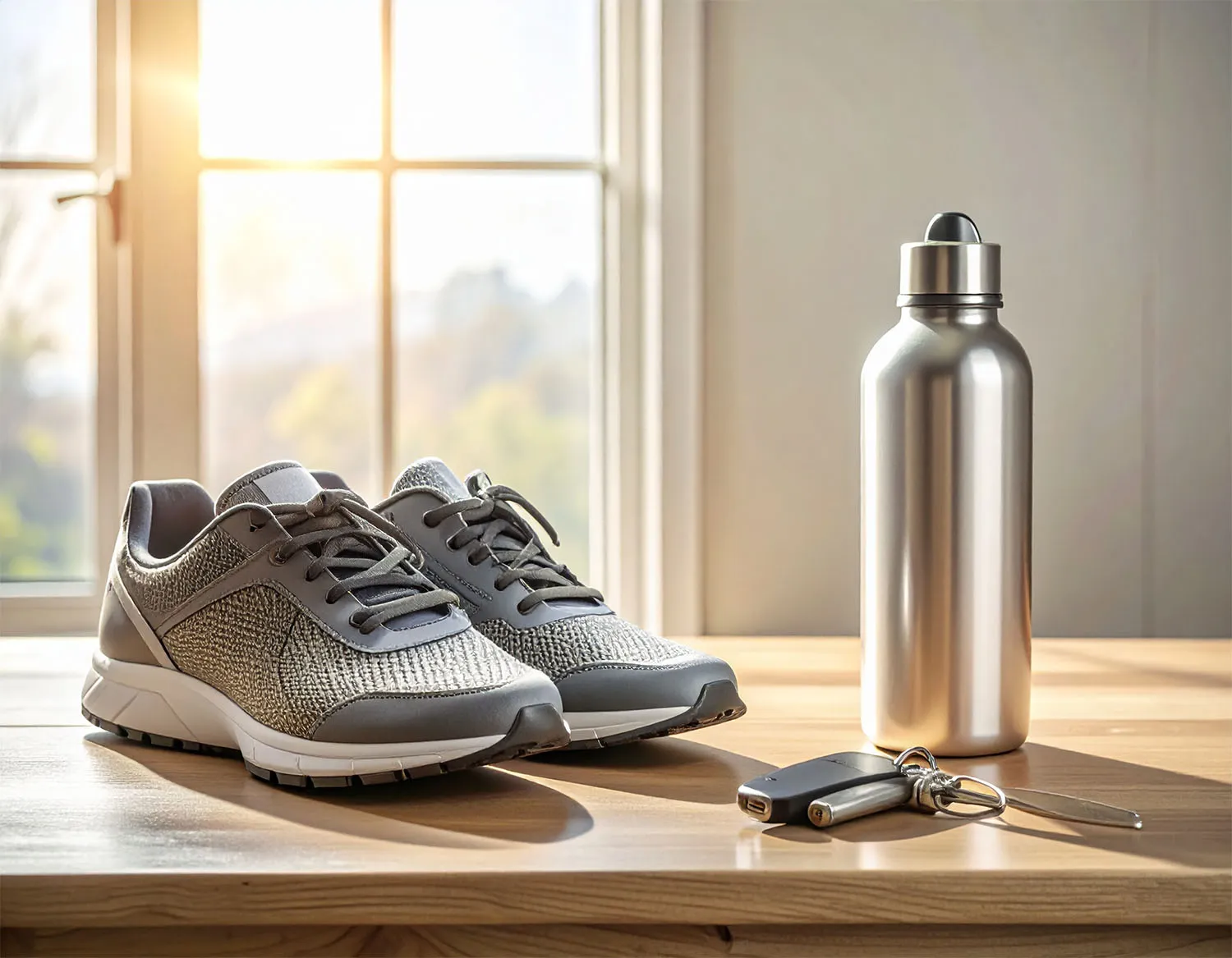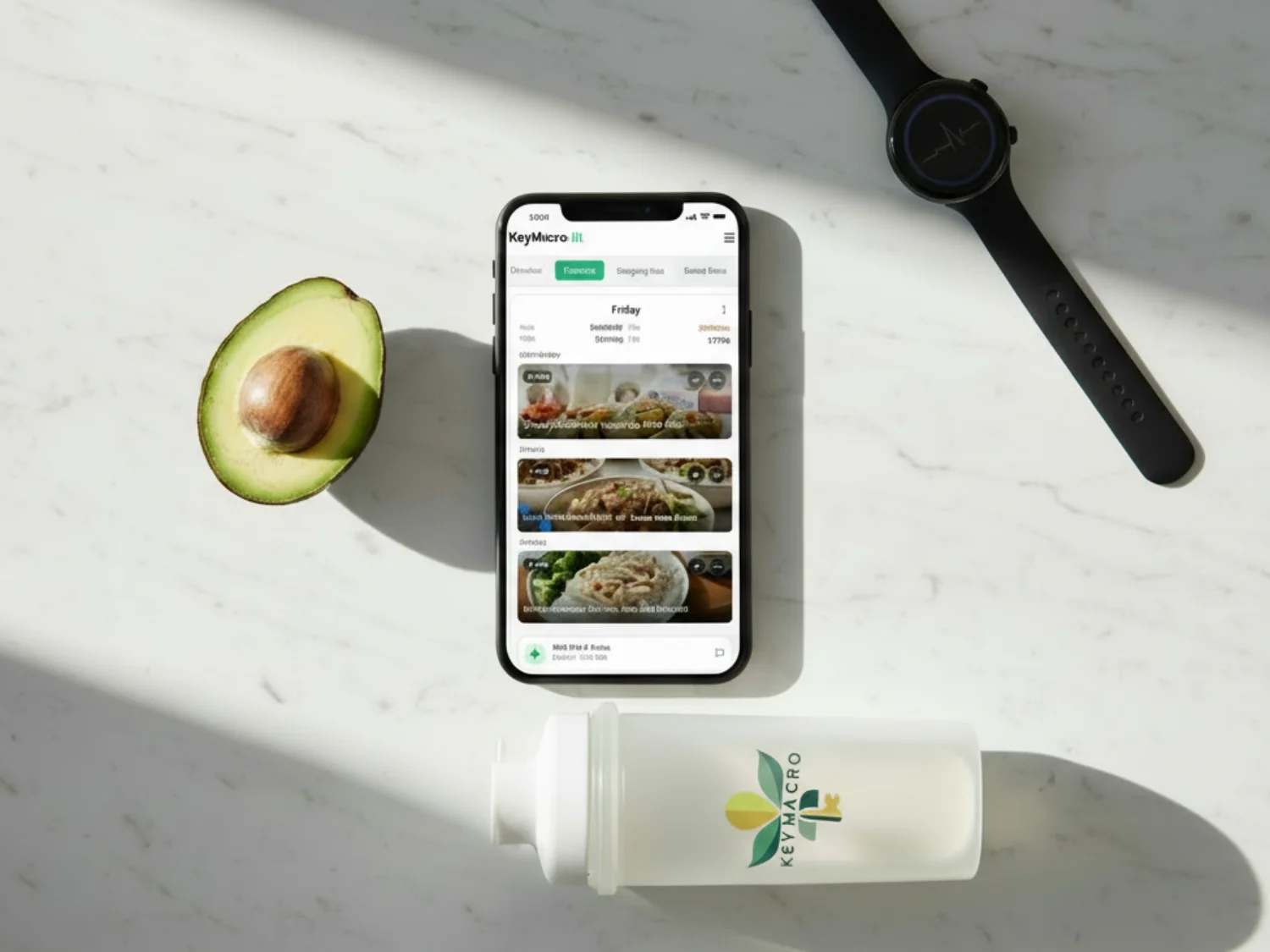Shoulder Save: Mobility Snacks for Desk‑Bound Bodies
Hours at a desk round the shoulders and stiffen the upper back. “Mobility snacks”—tiny movement breaks—reverse the creep without sweat or special gear.
What the research says
· Short movement breaks (micro‑breaks) help fatigue and performance and can reduce discomfort in some settings.¹
· Targeted stretching/exercise programs reduce neck/shoulder pain in office workers over weeks.²³
· Evidence quality varies by study; the practical takeaway is consistent short breaks and gentle, specific moves.

The 6‑minute circuit (repeat 1–3×/day)
1) Wall slides × 10 slow reps — back, hips, and head to wall; ribs down; glide hands up without shrugging.
2) Seated thoracic rotations × 5/side — hands across chest; rotate gently without leaning.
3) Doorway pec stretch × 30–45 s/side — elbow ~90°, forearm on frame; step through until a front‑of‑chest stretch.
4) Scap retractions × 8–12 — light band or no load; think “elbows to back pockets,” neck relaxed.

Pair breaks with cues
Every virtual meeting → 60 seconds of wall slides. Calendar blocker: “Shoulders, 2 minutes” mid‑morning and mid‑afternoon. Stand for phone calls; set laptop at eye height.
Ergonomics that help
Screen roughly at eye level; elbows ~90°; feet flat. Keyboard close; mouse arm supported; chair supports mid‑back. Breathe slowly during stretches; never chase pain—seek gentle tension.
---
References
1) Meta‑analysis: micro‑breaks improve vigor/fatigue and sometimes performance; useful for recovery.
2) RCTs in office workers: neck/shoulder stretching programs reduce pain and improve function over ~4 weeks.
3) Additional workplace studies show benefits of active breaks/postural shifts; evidence quality varies across trials.
Ready to turn what you just learned into a plan you can follow?
KeyMacro creates simple, high-protein weekly meal plans in seconds — no tracking, no overwhelm, no complicated decisions.
Start your first plan today.




